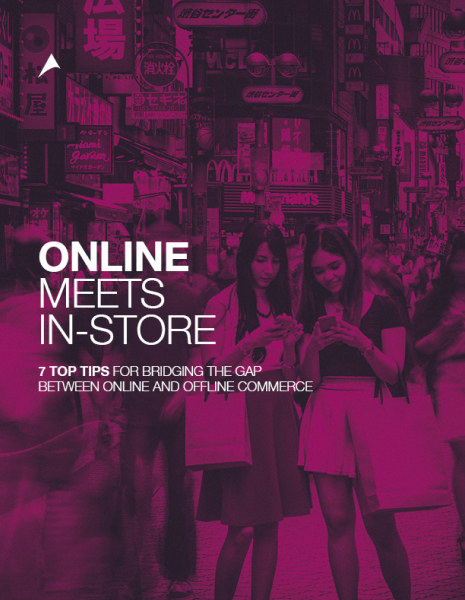Unsurprisingly, many enterprise-level organizations are feeling the constraints of their legacy platforms as they struggle to meet their customers where they are at any given touchpoint. To stay ahead, they are liberating their digital commerce capabilities by embracing composable commerce―most notably, headless solutions―allowing them to innovate at the speed of consumer demand and technological advancement.
Headless, without a doubt, has become the crown of modular ecommerce solutions, affording retailers the flexibility to bend to the will of consumer demand. However, those who lack the required in-house resources and/or funds to manage the multiple components that follow a decoupled solution could find their online ecosystem breaking under the weight of change.
Considering all this, what options are left for retailers seeking to increase the modularity of their platforms without increasing complexity—a solution that encompasses the benefits of both traditional and decoupled architectures? The answer may lie in Shopify’s enterprise offering Shopify Plus.
But before delving into Shopify Plus, let’s take a closer look at traditional as well as composable commerce.
The legend
A monolithic architecture is an all-in-one approach where the majority of required ecommerce features are managed within one platform. These features are seldom best of breed, which means merchants often end up paying extra for tools they may never use.
This traditional approach has its benefits, however, especially for small and medium-sized enterprises where a decoupled platform would require more resources and larger teams to maintain. On the other hand, enterprise organizations looking to scale cannot escape industry change. When chained to a monolithic platform in which all components are interdependent, retailers have almost no room for flexibility to make the customizations necessary for omnichannel success.
Evolving into composable commerce
A term coined by Gartner in a June 2020 report, composable commerce is a modular approach that seeks to utilize best-of-breed components (a system or solution that is the best at delivering a specific function, such as order management, customer relationship management, shipping and fulfillment, and so on), consolidating them into packaged business capabilities (PBCs) to create customized headless solutions.
MACH (Microservices, API-first, Cloud-native, and Headless) technologies form the foundation of composable commerce, and headless is a component of MACH used to deliver composable commerce.
Unlike a monolith, headless separates (decouples) the front-end or client-side code from back-end or server-side code. A solution driven by powerful application programming interfaces (APIs), headless allows developers the freedom and flexibility to create customizations fast with the aim of continuously delivering innovative omnichannel shopping experiences.
With that said, headless isn’t necessarily a silver bullet. Switching to a headless architecture can be complex, and maintaining a decoupled platform requires an extensive, digitally mature team with in-depth knowledge of multiple codebases.
Consequently, many retailers find themselves caught between two extremes, searching for a solution that will allow them to focus more on growth and less on maintenance.
Finding the sweet spot: Shopify Plus
Shopify focuses on the core elements required to manage a business’ commerce, concentrating on features that will benefit the majority of merchants using its platform. Retailers get basic product, order, and promotions management along with a best-of-breed checkout. Additionally, merchants don’t have to spend time on dealing with network architecture as Shopify takes full responsibility for maintaining the scalability and performance of the platform.
Shopify Plus is a fully hosted, cloud-based platform that allows retailers to manage every aspect of their online businesses from one admin. It offers the same capabilities as Shopify but with access to enhanced features, including unlimited extensibility, integration, and customization through flexible Shopify APIs and Shopify Plus Partners. Utilizing best-of-breed app technologies built by Shopify’s broad partner network gives Shopify Plus extensive composable capabilities, allowing merchants to rapidly and easily expand their online businesses while remaining focused on delivering the best customer experiences―all without risking reliability.
What does this mean in practice? Whatever your online business may need to facilitate growth, Shopify has a partner to help you extend your ecommerce platform and customize to your heart’s content.
Case in point, if you have a complex product catalog where search and merchandising is important, you can easily plug in Klevu (intelligent onsite search solution) or Algolia (search-as-a-service platform) to fuel search-led conversions. Want to build your brand community? Add reviews and user-generated content (UGC) with Yotpo or Okendo, and drive greater customer lifetime value with Loyalty Lion or Mention Me. For enhanced personalization that enables real-time product recommendations, Nosto keeps you one step ahead of customer needs. Furthermore, by installing ReCharge or OrderGroove, you can easily launch and manage subscription offerings. These examples barely scratch the surface in terms of what merchants can expect from Shopify Plus’ app and partner ecosystem.
With more than 6,600 apps in the Shopify App Store, more than 195 Shopify Plus Partners, and more than 90 Shopify Plus Certified Apps, there’s no question that the platform fits the composable commerce mold―but it does come with a twist. The Shopify Plus platform encompasses the best of both full-service and decoupled approaches to ecommerce.
Final thoughts
So, if you are a retailer aiming to launch fast, scale fast, and focus more on customer experiences and you are not quite ready to (or simply don’t want to) take on the costs and the responsibility of managing multiple tech stacks, Shopify Plus may be the solution for you. Capable of handling 3 million visitors per second and close to 11,000 checkouts per minute with 99.99 percent uptime, the platform is, undeniably, a fast, flexible, and reliable platform. And in terms of costs, the monthly license fee starts at US$2,000, with no additional costs for hosting and infrastructure.
All in all, whichever approach you decide to take to overcome scalability issues and future-proof your ecommerce business against market challenges, one thing seems to be clear: composable commerce is the future of digital commerce. And deciding how you will deliver a well-composed solution requires you to weigh your business’ needs against your in-house capabilities and the capabilities of the best external ecommerce solutions.
Want to tap our expertise in implementing Shopify Plus? Get in touch today.

